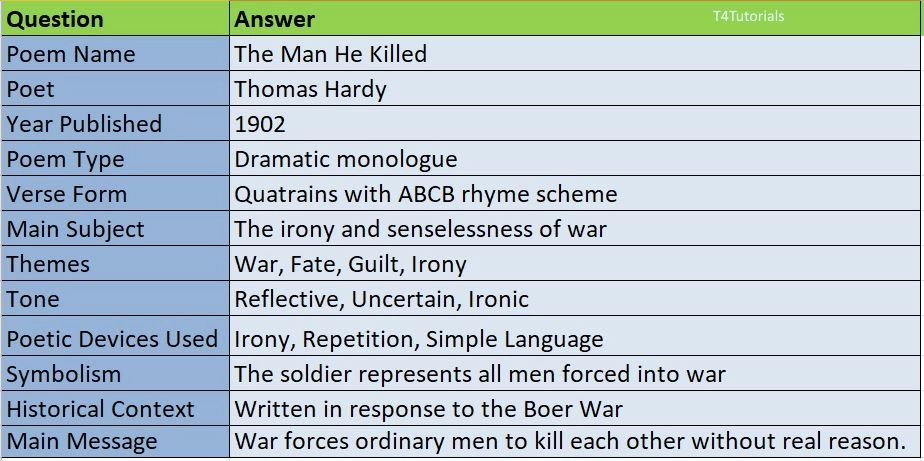Summary:
Thomas Hardy’s The Man He Killed is a dramatic monologue that explores the irony and senselessness of war. The speaker, a soldier, reflects on how he killed an enemy in battle—someone who, under different circumstances, he might have shared a drink with. The poem highlights the absurdity of war, where men who have no personal grievances against each other are forced to fight and kill. Hardy uses simple language and an ironic tone to emphasize the tragic consequences of blind duty and war’s illogical nature.

15
Score: 0
Attempted: 0/15
Subscribe
Score: 0
Attempted: 0/15
Subscribe
| Question | Answer |
| Poem Name | The Man He Killed |
| Poet | Thomas Hardy |
| Year Published | 1902 |
| Poem Type | Dramatic monologue |
| Verse Form | Quatrains with ABCB rhyme scheme |
| Main Subject | The irony and senselessness of war |
| Themes | War, Fate, Guilt, Irony |
| Tone | Reflective, Uncertain, Ironic |
| Poetic Devices Used | Irony, Repetition, Simple Language |
| Symbolism | The soldier represents all men forced into war |
| Historical Context | Written in response to the Boer War |
| Main Message | War forces ordinary men to kill each other without real reason. |